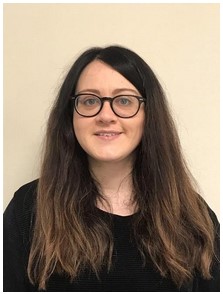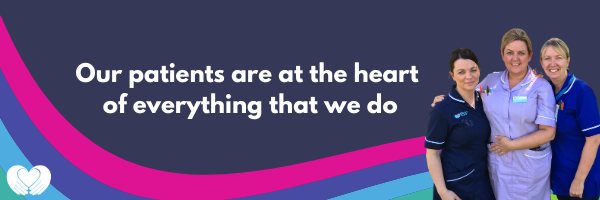
Hi, I’m Kat, and I’m a nurse at Dr Kershaw’s Hospice in Oldham. You’ve heard from me before and today I wanted to share with you my experiences of supporting Becky, an incredible woman living with metastatic breast cancer, and my thoughts on what I hope early hospice care was able to contribute to her life.
I first met Becky about 6 months after her initial diagnosis with primary breast cancer, which had quickly metastasized. She was having active treatment and her clinical needs were well met, but she was struggling with significant anxiety that was compromising her quality of life. She was grappling with worries about how her disease might progress and how her support needs might change, and she was anticipating the possible circumstances of her death, and the impact this would have on her husband, family and friends.
Becky invited me into her home and her confidence with an immediacy and an openness that I have rarely experienced in my nursing career, and I came to see this quiet and unassuming quality of Becky’s as her superpower, in a way. She was able and willing to engage wholeheartedly with healthcare support in the most difficult of circumstances—not an easy ask when she was simultaneously hitting the limits of what medical care could do to treat her metastatic breast cancer—but this meant that Becky had a strong awareness of what types of support would work for herself and her family.
We did a lot of talking over the last year of Becky’s life, and some of this translated into formal and informal planning. Becky put together an Advanced Care Plan—a document that set out her wishes for her future care so that others, including healthcare professionals, could be aware of and plan according to her wishes. Though Becky and her husband already had this well in hand so didn’t require it, we can also advise and support in cases where legal planning is useful, such as writing a will or obtaining Legal Power of Attorney. We made countless informal plans about how we would manage physical symptoms if they arose, and as a natural organiser and planner Becky told me often how reassuring she found this. She had complementary therapy at the Hospice to address both her anxiety and her pain. What was happening during this period was that relationships were being built—between Becky and I, between Becky and other Hospice staff, between myself and Becky’s family. These relationships were a source of ongoing, consistent mental health support as Becky was transitioning from active treatment into Hospice care. When we met, Becky was worried about the prospect of dying in the Hospice. By the time she required our clinical support, Becky actively chose to be with us at the Hospice, and decided that this was where she wanted to die. I hope and believe that the quality of the relationships we built and the support we were able to offer played a part in this decision.
Becky died in the Hospice in September 2021, with her husband by her side and cared for by a clinical team that she knew and, I think, felt safe and comfortable with. She was busy living with mets all the way to the end of her life—the value she placed on making memories and living well for as long as she could never faltered. I think about her often—her gentle nature, her kindness, her gratitude for any support I offered, her nerves and uncertainty, her wobbles and her fears, her dignity and courage in advocating for herself and her medical care, her determination to put things in place to support the people she loved after her death. I feel really lucky to have known her and been able to play a part in her care.
Since her death, and inspired by Becky’s own drive to seek out people with similar experiences and to share her story to support others, we at the Hospice, with the support of Becky’s husband, are in the process of setting up a project to support people affected by metastatic disease and other life-limiting illnesses to share and record their stories. We hope that this will be a means of bringing people living with mets together and offering support that is not clinically or even necessarily disease-focussed. In this way, Becky remains very much a part of life here at the Hospice.

By Kathryn Harding, Bereavement Support Nurse






